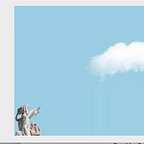Against Interpretation and Other Essays
Against Interpretation
Sontag on Marx & Freud, their doctrines, and hermeneutics: “[Subjects to be interpreted] For Marx, social events like revolution and wars; for Freud, the events of individual lives as well as texts… To understand is to interpret. And to interpret is to restate the phenomenon, in effect to find an equivalent for it.”
“The fact that films have not been overrun by interpreters is in part due simply to the newness of cinema as an art. It also owes to the happy accident that films for such a long time were just movies; in other words, that they were understood to be part of the mass, as opposed to high, culture, and were left alone by most people with minds.”
Sontag also mentions how overinterpretation (or being over-obsessed w/ the art’s symbols, meanings, ironies, etc.) is not the only(supreme) way to treat art or the artist. Modern arts are intentionally made to not be interpreted, according to Sontag.
Very interesting… from time to time, I question about the real meaning of the interpretation of artworks — “This x part of the painting symbolizes y, this facial expression of the portrait means something very substantial…” Why don’t we just leave the pieces in peace, and leave the artists alone? Well, that will only be an alternative way to appreciate art. A more enjoyable way, at least for me. The same applies to music (classical music, contemp music is a different story).
In brief, so far, I think Sontag is a great person who has insightful things to say about literature, society, and many other things in the world. A great book with interesting essays.
12/31
On Style
First half: the purpose of art (or no purpose at all)
aesthetics vs. ethics. Should all forms of art (literature, art, music) be moral? Is sensual gratification more important? To what extent?
Second half: Many examples. Arguments are a bit confusing.
Camus’ Notebooks
There are two types of artists (writers): the lover and the husband. moodiness vs. conscientiousness
Camus is a husband, Sontag says.
“He had to traffic in the madmen’s themes: suicide, effortlessness, gracious impersonality, and to place him apart from the others. Starting from the premises of a popular nihilism, he moves the reader — solely by the power of his own tranquil voice and tone — to humanist and humanitarian…”
But he might also be a hypocrite (not true), or someone who spends more time contemplating instead of doing, a theorist, not an experimentalist.
“[Camus] as the man who incarnates the Nobel Feeling, as distinct from the Nobel Act… action is not Camus’ first action”. Camus’s “Agonizing inability to take a stand on the Algerian question.” and, his later decision with leaving the Communist party, yet still being silent.
Camus and his Notebooks — despite the fact that he did live a fairly interesting life, his Notebooks:
“are of so impersonal nature, completely exclude the events and the people in his life… about himself only as a solitary — a solitary reader… walker in the world. Solitariness is the indispensable metaphor of the modern writer’s consciousness.”
A great idea: keeping a solitary, calm, indifferent journal. I have not read Camus’ Notebooks. Maybe I will someday.
1/2
The Death of Tragedy
What is Tragedy? According to Sontag, the story of Archilles can be one. Oedipus is another. There is no rationality nor self-consciousness in tragedies. Everything happens subconsciously and chaotically.
“The story of Oedipus is tragic insofar as it exhibits the brute opaqueness of the world, the collision of subjective intention with objective fate… Tragedy is a vision of nihilism, a heroic or ennobling vision of nihilism.”
The title might remind one of Nietzsche’s “The Birth of Tragedy”, as Sontag points out at the beginning of her essay. Though a very obscure book, in it Nietzsche criticizes the permeating Socratic rationality that was championed by the Western world (maybe it’s the same case in today’s society).
Sontag criticizes Lionel Abel’s thesis (in his Tragedy and Metatheatre) regarding theater and tragedy. Sontag’s second objection (there are 3 in total) is also related to Nietzsche’s argument: Sontag thinks that Christian tragedy cannot be created if one considers Christianity’s doctrine “In the world envisaged by Judaism and Christianity, there are no free-standing arbitrary events. All events are part of the plan of a just, good, providential deity; every crucifixion must be topped by a resurrection.”
On the contrary, in a tragedy “there are disasters which are not fully merited, that there is ultimate injustice in the world.”
How does Sontag incorporate Nietzschean ideas into her essay?
Sontag: “In Nietzsche’s argument, reason, the fundamentally optimistic spirit of Socrates, killed tragedy in ancient Greece.”
Nietzsche, a poetic philosopher (or a philologist), fiercely reproached his former friend/”colleague” Wagner’s compositions and philosophy, as he realized that his friend Wagner had succumbed to the Christian idea of redemption & salvation. This is exactly what Nietzsche despised. God is died, thus he spoke.
Another great quote from Sontag:
“Art is seen as a mirror of human capacities in a given historical period, as the preeminent form by which a culture defines itself, names itself, dramatizes itself.”
